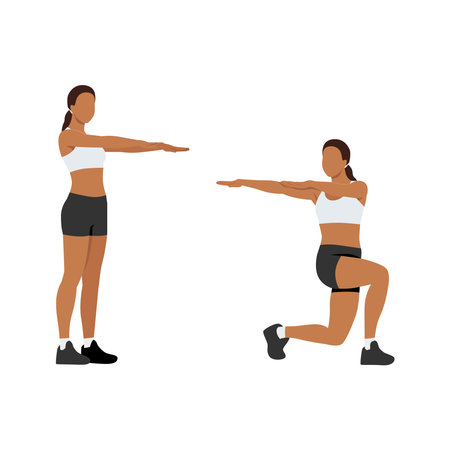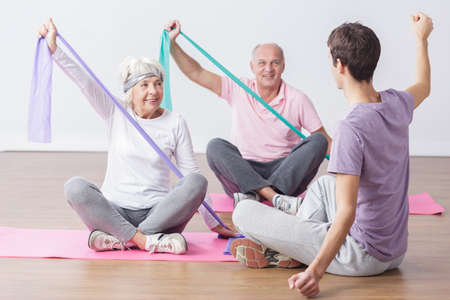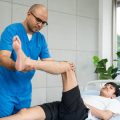Understanding Cognitive Health in Aging
As we age, it’s normal to notice some changes in how our brain works. But what exactly is cognitive health, and why is it so important for seniors? Cognitive health means the ability to clearly think, learn, and remember. These are essential skills for staying independent, managing daily life, and enjoying meaningful social connections.
What Is Cognitive Health?
Cognitive health involves a range of mental abilities, such as:
- Memory – recalling information, people, and past events
- Attention – focusing on tasks or conversations
- Language – understanding and using words effectively
- Problem-solving – making decisions and handling challenges
Maintaining these abilities helps seniors stay engaged with loved ones, handle finances or medications, and participate in favorite hobbies.
Common Changes with Aging
Aging naturally brings some changes to cognitive function. It’s common to experience things like slower recall or needing more time to process information. However, significant memory loss or confusion isn’t a normal part of aging. Here’s a simple look at typical versus concerning changes:
| Normal Aging | Possible Concern |
|---|---|
| Occasionally forgetting names or appointments but remembering them later | Frequent memory loss that disrupts daily life |
| Sometimes having trouble finding the right word | Trouble following conversations or repeating questions often |
| Slower thinking or multitasking | Difficulty completing familiar tasks |
Why Brain Health Matters for Seniors
Cognitive health affects nearly every aspect of life for older adults. When the brain stays healthy, seniors can maintain their independence longer and enjoy a better quality of life. Good brain health also lowers the risk of conditions like dementia and depression.
The Role of Daily Choices
The good news is that many factors influencing cognitive health are within our control. Nutrition and lifestyle choices—like what we eat, how much we move, sleep habits, and staying socially active—can all play a big role in supporting brain function as we get older.
2. The Role of Nutrition in Brain Function
As we age, what we eat becomes even more important for keeping our brains healthy. Many studies have shown that certain nutrients can help support memory, focus, and overall brain function in seniors. In this section, well take a closer look at the key nutrients that play a big role in cognitive health and share practical eating tips tailored for American seniors.
Key Nutrients for Cognitive Health
| Nutrient | Main Benefits | Sources Common in the U.S. |
|---|---|---|
| Omega-3 Fatty Acids | Support memory, may lower risk of dementia | Fatty fish (salmon, sardines), walnuts, flaxseeds, chia seeds |
| Antioxidants (Vitamin C & E) | Protect brain cells from damage caused by free radicals | Berries, oranges, spinach, bell peppers, almonds |
| B Vitamins (B6, B12, Folate) | Help maintain healthy nerve cells and support mental clarity | Leafy greens, eggs, dairy products, fortified cereals, beans |
| Vitamin D | May help reduce risk of cognitive decline | Egg yolks, fortified milk, sunlight exposure, fatty fish |
| Zinc & Iron | Aid in proper brain signaling and energy production | Lean meats, beans, pumpkin seeds, whole grains |
Practical Dietary Recommendations for Seniors in America
- Add More Fish: Try to include fatty fish like salmon or tuna at least twice a week. If you dont like fish or are vegetarian, consider walnuts or flaxseeds as alternatives.
- Pile on the Color: Aim for fruits and veggies of different colors every day. A smoothie with berries or a salad with spinach and bell peppers is an easy way to get antioxidants.
- Choose Whole Grains: Swap white bread or rice for whole wheat bread or brown rice to boost your intake of B vitamins and fiber.
- Dairy Counts: Low-fat milk or yogurt not only provides calcium but also vitamin D and B12. Look for “fortified” options if you avoid dairy.
- Stay Hydrated: Dehydration can impact thinking skills. Aim for 6–8 cups of water daily unless your doctor suggests otherwise.
- Watch Portion Sizes: As metabolism slows with age, focus on nutrient-rich foods rather than large portions.
- Limit Processed Foods: Packaged snacks and fast food often contain unhealthy fats and added sugars that may harm brain health over time.
Tips for Easy Meal Planning at Home
- Create a Shopping List: Include items like frozen berries, canned beans (low sodium), whole grain breads, eggs, leafy greens, and nuts.
- Simplify Cooking: Use slow cookers or batch-cook meals so you have healthy options ready throughout the week.
- Elder Nutrition Programs: Check if local senior centers offer meal programs or home-delivered meals designed to meet nutritional needs.

3. Physical Activity and Cognitive Resilience
Staying physically active is one of the best ways seniors can support their brain health. Research shows that regular exercise is closely linked to better memory, sharper thinking skills, and a lower risk of cognitive decline. Being active helps increase blood flow to the brain, reduces inflammation, and encourages the growth of new brain cells—all important for keeping your mind strong as you age.
How Physical Activity Supports Brain Health
Exercise benefits more than just muscles and joints. It helps manage stress, improves sleep, and even boosts mood by releasing feel-good chemicals called endorphins. All of these effects work together to protect cognitive abilities in seniors. Regular movement also lowers the risk of conditions like heart disease and diabetes, which are known to impact brain function.
Accessible Exercise Options for Seniors
You dont need to hit the gym hard or run marathons to see benefits. Many forms of physical activity are gentle on the body and easy to fit into daily life. Here are some accessible options:
| Type of Activity | Description | How It Helps |
|---|---|---|
| Walking | A simple way to get moving; can be done indoors or outdoors | Improves circulation, boosts mood, supports memory |
| Chair Exercises | Seated movements using arms and legs, often with light weights or resistance bands | Builds strength safely, increases flexibility, good for limited mobility |
| Yoga or Tai Chi | Gentle stretching and balance exercises that focus on breathing and relaxation | Reduces stress, enhances balance and focus, encourages mindfulness |
| Dancing | Moving to music solo or with others at home or in group classes | Boosts coordination, lifts spirits, stimulates memory through learning steps |
| Gardening or Light Housework | Bending, reaching, lifting light objects around the house or yard | Keeps you moving regularly, gives a sense of accomplishment, connects mind and body |
Tips for Getting Started Safely
- Start slow—just a few minutes a day can make a difference.
- If you have health concerns, talk with your doctor before starting a new routine.
- Choose activities you enjoy so it’s easier to stick with them.
- Stay hydrated and wear comfortable shoes.
- Invite friends or family members for extra motivation and fun.
The Takeaway: Keep Moving for a Sharper Mind
No matter your age or fitness level, adding more movement into your day can help keep your mind resilient. Every step counts—so find what works for you and enjoy the benefits of staying active!
4. The Impact of Social Engagement and Mental Stimulation
Staying socially connected and keeping your brain active are just as important as good nutrition and exercise when it comes to cognitive health in seniors. In the United States, many older adults find meaningful ways to stay engaged with their communities, friends, and family. Let’s explore how social interaction and mental activities can help preserve memory and thinking skills.
Why Social Engagement Matters
Social engagement means having regular interactions with others. This can be as simple as chatting with a neighbor, joining a club, or spending time with grandchildren. Research shows that seniors who stay socially active tend to have better cognitive function and slower rates of memory decline compared to those who feel isolated or lonely. Being around others helps keep your mind sharp by giving you opportunities to listen, respond, and share stories.
Mental Stimulation Through Activities
Keeping the brain challenged is another key part of staying mentally healthy. Activities that make you think—like puzzles, learning new skills, or playing games—can strengthen neural connections and even create new ones. Here are some popular ways American seniors keep their minds active:
| Activity | Description | Cognitive Benefits |
|---|---|---|
| Volunteering | Helping at local schools, hospitals, or food banks | Encourages problem-solving and social interaction |
| Hobbies | Pursuing arts, gardening, crafts, or music | Improves focus, creativity, and memory |
| Lifelong Learning | Taking classes at community centers or online | Builds new knowledge and keeps the brain flexible |
| Games & Puzzles | Playing cards, board games, or crossword puzzles | Enhances logic, strategy, and recall skills |
| Book Clubs | Reading and discussing books with others | Boosts comprehension and critical thinking |
The Role of Community Resources in the U.S.
Many American communities offer resources designed for senior engagement. Senior centers often host group activities like dance nights, art classes, and educational workshops. Libraries may offer free lectures or technology training sessions. These programs not only support social connection but also encourage lifelong learning.
Tips for Staying Engaged and Mentally Active:
- Join a local club or volunteer organization that interests you.
- Set aside time each week for a favorite hobby or learn something new online.
- Schedule regular phone or video calls with friends and family if you cant meet in person.
- Challenge yourself with a new book, puzzle, or game regularly.
- Attend community events or workshops to meet new people and expand your skills.
By making social engagement and mental stimulation part of your everyday routine, you can help protect your cognitive health as you age. Small steps—like joining a book club or signing up for a class—can make a big difference in keeping your mind sharp and your spirits high.
5. Lifestyle Modifications for Everyday Living
Simple Changes to Support Cognitive Health
Making small, realistic changes to daily habits can make a big difference in maintaining brain health as we age. Here are some practical tips that American seniors can start using right away:
Daily Nutrition Strategies
| Tip | How to Try It |
|---|---|
| Add More Fruits and Veggies | Keep pre-washed baby carrots or apple slices handy for snacks. |
| Focus on Whole Grains | Swap white bread for whole wheat or try oatmeal for breakfast. |
| Choose Lean Proteins | Include chicken, fish, or beans in your meals instead of red meats. |
| Stay Hydrated | Carry a reusable water bottle and sip throughout the day. |
| Limit Processed Foods | Check labels and opt for foods with fewer ingredients and less added sugar or salt. |
Lifestyle Habits for a Healthy Mind
- Get Moving: Walking, gardening, or dancing just 30 minutes a day can boost both mood and memory.
- Connect with Others: Join community centers, book clubs, or volunteer groups to stay socially active.
- Mental Exercise: Try puzzles, word games, or learning something new like painting or basic computer skills.
- Prioritize Sleep: Aim for 7-8 hours of sleep each night by sticking to a regular bedtime and limiting screen time before bed.
- Manage Stress: Practice deep breathing, meditation, or gentle yoga. Consider talking with friends or family when feeling overwhelmed.
Overcoming Common Barriers
| Challenge | Strategy |
|---|---|
| Lack of Motivation | Find a buddy—doing activities with friends makes it more fun and helps you stick to your goals. |
| Tight Budget | Shop local farmers markets, buy frozen fruits and vegetables, and plan meals ahead to avoid waste. |
| Poor Mobility | Try chair exercises, stretching routines, or water aerobics at a nearby YMCA or senior center. |
| No Cooking Skills | Look up simple recipes online or ask family members to help prep healthy meals together. |
| Lack of Support | Reach out to community organizations or local churches offering senior programs and resources. |
Your Everyday Action Plan
You don’t have to change everything at once. Start by picking one small nutrition tip and one lifestyle habit from above. Over time, these steps can add up to better cognitive health and overall well-being. Remember: every little bit counts!


